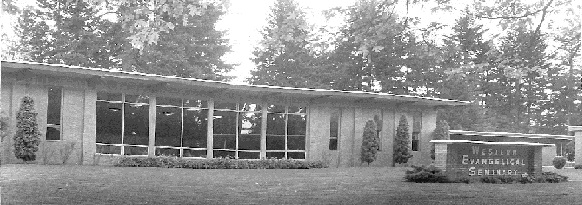Date of Award
1978
Document Type
Dissertation
Abstract
This paper examines the thought of Ernst Troeltsch, specifically in regards to his attempt to show that Christianity is a superior religion among other world religions . The key to understanding Troeltsch's thinking in this regard is to consider his methodological foundation which was historicist. The problem which Troeltsch sought to address throughout his works but especially in The Absoluteness, i. e., how to find universal values within relative historical phenomena, was generated out of his desire for religious certainty while at the same time being consistent with historicist methodology.
Although, in his early career, Troeltsch did find a satisfactory balance between these two desires, he ultimately came to a skeptical conclusion concerning religious certainty because of his deepening commitment to consider historical variety, which is an overriding historicist principle. The paper proposes to examine Troeltsch's quest for certainty focusing on three phases of his life represented by three of his most important works.
The first phase is epitomized by his work The Absoluteness of and the of Here Troeltsch worked out an apologetic based on a comparison of Christianity with other world religions and concluded that, although not absolute, Christianity was normative among other religions because it brought to flower all the latent potentialities of other faiths and combined them into one.
The second phase of Troeltsch's life is epitomized by his work, The Social of the Christian Churches.In the course of researching and writing this work, Troeltsch became increasingly impressed with the uniqueness and individuality of Christianity in particular and all religions in general. Consequently , he began to doubt whether religions could be compared in the manner he had employed in The Absoluteness. The extreme diversity and variety of all historical phenomena , Troeltsch felt , precluded such a methodology, and, finally, at the end of his life, he reversed his belief in the normativeness of Christianity. This was spelled out in his work Der Historismus und seine Probleme , which epitomizes the third phase of his life.
His search for some kind of religious certainty and universal value was terminated by his desire to be true to the facts "wie sie eigentlich gewesen sind". His search for validity in History was overcome by his recognition of the overwhelming individual character of all historical/phenomena. The foundation of this defeat can be located in Troeltsch's specifically historicist methodology.
Recommended Citation
Goetz, Steven N., "Ernst Troeltsch's Quest for Certainty" (1978). Western Evangelical Seminary Theses. 216.
https://digitalcommons.georgefox.edu/wes_theses/216

